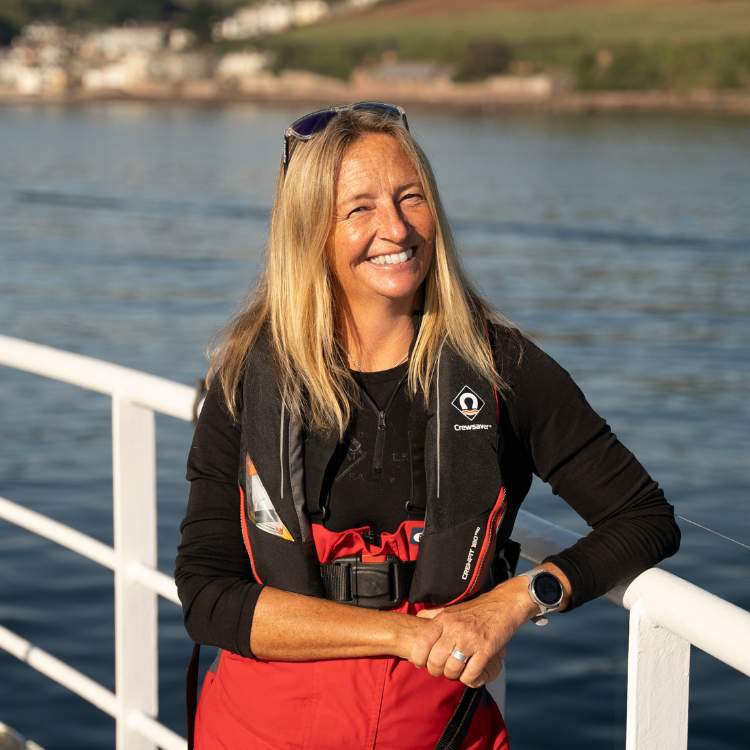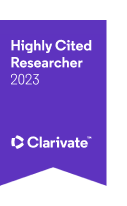
Professor Pennie Lindeque
Head of Science: Marine Ecology and Biodiversity
pkw@pml.ac.uk | +44 (0)1752 633100 (switchboard)"I am fascinated how biology works and passionate about understanding how anthropogenic pollutants and environmental change impact marine organisms and ecosystems. Working at PML with inspiring colleagues allows me to address a range of challenges, thereby helping to maintain a healthy marine environment for future generations."
Pennie is a world-leading marine scientist at the forefront of pioneering research into the causes, effects and solutions of microplastics and anthropogenic particles. She is Head of Science for Marine Ecology and Biodiversity at Plymouth Marine Laboratory (PML) and holds an honorary Professorship at the University of Exeter in the Faculty of Environment, Science and Economy.
Pennie leads a dynamic area of research at PML conducting cutting-edge research developing and using new analytical techniques, including at the molecular level, to study the effects of environmental pollutants such as microplastics on marine organisms and ecosystems, using knowledge gained to explore nature-based solutions. Her work on the impact of microplastics in the marine environment has directly influenced policy in the UK and around the world, including the UK ban on microbeads in cosmetics.
She is passionate about disseminating research to a wide audience supporting the next generation of scientists and creating widespread awareness. Pennie has contributed to popular science articles including a feature documentary called Plastic Warriors (2023), award winning cinematic feature documentary called ‘Eating our way to extinction’ (2022); and Blue Planet II (Nov 2017). Pennie has been awarded the Blue Planet Prize, for her research and influence on the global issue of marine microplastics (2023); the Volvo Environment Prize for ground-breaking research in understanding the impact of microplastics on marine animals and the environment (2022), was a joint winner of the NERC Societal Impact Award for Outstanding Societal and Policy Research Impact and Overall winners with University of Exeter and University of Plymouth (2018), and has been listed as one of the ‘World’s Most Highly Cited Researchers’ in the field of Environment and Ecology for 5 consecutive years.

- NERC Highlight topic grant, 2020-2024; Biodegradable Bioplastics - Assessing Environmental Risk (BIO-PLASTIC-RISK).
- NERC Discovery Grant, 2021-2024; Lost at Sea: Where are all the tyre particles? – Tyre-Loss.
- GCRF funding 2021-2024; Reducing the impacts of plastic waste in the Eastern Pacific Ocean.
- Personal recipient of philanthropic donation from March Marine Initiative, 2019-2021; Nature-based solution for marine microplastics.
- Newton-Paulet Fund Research Link Workshop, 2018.
- NERC Changing Arctic Ocean Programme 2017-2021; Mechanistic understanding of the role of diatoms in the success of the Arctic Calanus complex and implications for a warmer Arctic (DIAPOD).
Lindeque, PK;, Cole, M; Coppock, RL; Lewis, CN; Miller, RZ; Watts, AJR; Wilson-McNeal, A; Wright, SL; Galloway, TS. 2020. Are we underestimating microplastic abundance in the marine environment? A comparison of microplastic capture with nets of different mesh-size. Environmental Pollution.
Nelms, SE; Galloway, TSG; Godley, BJ; Jarvis, DS; Lindeque, PK. 2018. Investigating microplastic trophic transfer in marine top predators. Environmental Pollution.
Lindeque, PK;, Parry, HE; Harmer, RA; Somerfield, PJ; Atkinson, A. 2013. Next generation sequencing reveals the hidden diversity of zooplankton assemblages. PLoS ONE.
Cole, M; Lindeque, PK; Fileman, E;, Halsband, C;, Goodhead, R;, Moger, J; Galloway, TS. 2013. Microplastic ingestion by zooplankton. Environmental Science and Technology.
Cole, M; PK Lindeque, PK; Halsband-Lenk, C; Galloway, T. 2011. Microplastics as contaminants in the marine environment: A review. Marine Pollution Bulletin.
Lindeque, PK; Harris, RP; Jones, MB; Smerdon, GR. 1999. Simple molecular method to distinguish the identity of Calanus species (Copepoda: Calanoida) at any developmental stage. Marine Biology, 133, 91-96.
Recent publications
- Garrard, SL; Clark, JR; Martin, N; Nelms, SE; Coppock, RL; Jones, M; Lindeque, PK; Tillin, H.M.; 2024. Identifying potential high-risk zones for land-derived plastic litter to marine megafauna and key habitats within the North Atlantic. Science of the Total Environment.
- Aguirre-Sanchez, A; Purca, S; Cole, MJ; Indacochea, A; Lindeque, PK; 2024. Prevalence of microplastics in Peruvian mangrove sediments and edible mangrove species. Marine Pollution Bulletin.
- McIlwraith, HK; Lindeque, PK; Miliou, A; Tolhurst, TJ; Cole, MJ; 2024. Microplastic shape influences fate in vegetated wetlands. Environmental Pollution.
- McEvoy, AJ; Atkinson, A; Airs, RL; Brittain, R; Brown, IJ; Fileman, ES; Findlay, HS; McNeill, CL; Ostle, C; Smyth, TJ; Somerfield, PJ; Tait, K; Tarran, GA; Thomas, S; Widdicombe, CE; Woodward, EMS; Beesley, A; Conway, DVP; Fishwick, J; Haines, H; Harris, C; Harris, RP; Helaouët, P; Johns, DG; Lindeque, PK; Mesher, T; McQuatters-Gollop, A; Nunes, J; Perry, F.; Queiros, AM; Rees, AP; Ruhl, S; Sims, DW; Torres, R; Widdicombe, S; 2023. The Western Channel Observatory: a century of physical, chemical and biological data compiled from pelagic and benthic habitats in the western English Channel. Earth System Science Data.
- Stevenson, EM; Buckling, A; Cole, MJ; Lindeque, PK; Murray, AK; 2023. Selection for antimicrobial resistance in the plastisphere. Science of The Total Environment.